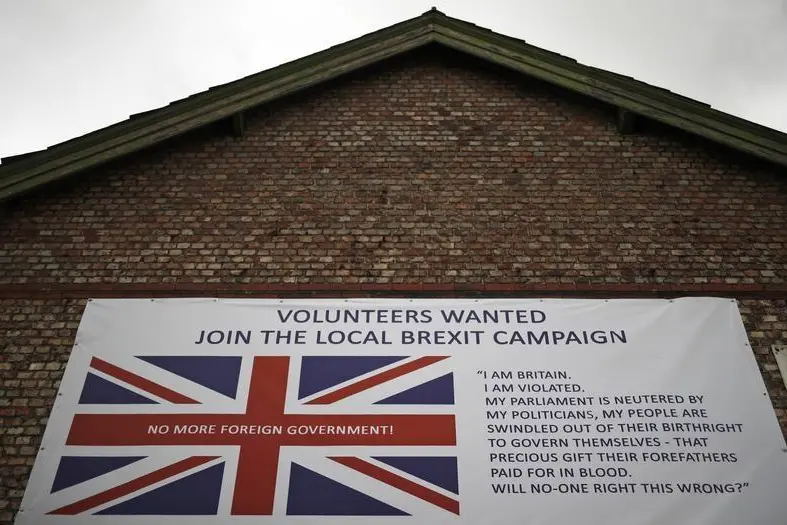PHOTO
(The author is a Reuters Breakingviews columnist. The opinions expressed are his own.)
By Peter Thal Larsen
LONDON, March 21 (Reuters Breakingviews) - Britain’s poor productivity faces a new threat from Brexit. As in most developed countries, UK companies are finding it harder to produce more without adding extra workers or capital. The notable exceptions are exporters and foreign-owned firms. If leaving the European Union squeezes trade and shrinks foreign investment, British living standards will suffer.
It’s hard to pinpoint a single cause for the slowdown in productivity growth. Possible explanations include ageing populations; a lack of technological innovation; memories of the financial crisis; or low interest rates that prevent poorly-run companies from going bust. But as Andy Haldane, chief economist of the Bank of England, argued in a speech on Monday, none of these is wholly convincing.
What is clear, though, is that the difference between the most and least productive companies is wider than before. In theory, this gap should shrink over time as laggards mimic the innovations of their more efficient rivals. This is not happening - perhaps because patents and other protections on intellectual property make it harder for new ideas to spread.
Whatever the explanation, boosting the stragglers is a priority for policymakers. As Haldane points out, if UK firms in the three least productive quartiles were able to improve at the same rate as companies in the quartile above, overall UK productivity would rise by 13 percent.
But another priority is looking after those companies which are already highly productive. Here, two categories stand out. British firms that are involved in exports are, on average, about a third more productive than domestic peers, Haldane says. Foreign-owned companies, meanwhile, achieve double the rates of productivity. This seems logical. Companies which sell overseas are more likely to be exposed to international competition. Meanwhile, foreign buyers are more likely to target companies that lead their field.
The problem is that these sectors are at risk from Brexit. If negotiations with the EU go badly, British companies may have to pay tariffs when selling abroad, while foreign investors may be less interested in the United Kingdom. Looking after exporters and foreign-owned firms will not solve Britain’s productivity problem. Putting them at a disadvantage would make it worse.
On Twitter https://twitter.com/peter_tl
CONTEXT NEWS
- Bank of England Chief Economist Andy Haldane stressed the importance of free trade and foreign direct investment to Britain's economy on March 20, saying that he hoped these would be preserved or enhanced following Brexit.
- Speaking at the London School of Economics, Haldane highlighted data showing how companies that export or are foreign-owned are more productive, underscoring the importance of openness in both terms of trade or investment from abroad.
- Asked how Britain's departure from the European Union might affect its productivity performance, Haldane said: "For a foreign-owned (company), it's twice as productive as domestically run firms. Higher exports, higher productivity - that screams from the data."
- "So you would hope that both of those features were preserved, ideally enhanced, in a post-Brexit world," Haldane said.
- SIGN UP FOR BREAKINGVIEWS EMAIL ALERTS http://bit.ly/BVsubscribe
(Editing by John Foley and Liam Proud)
© Reuters News 2017





















